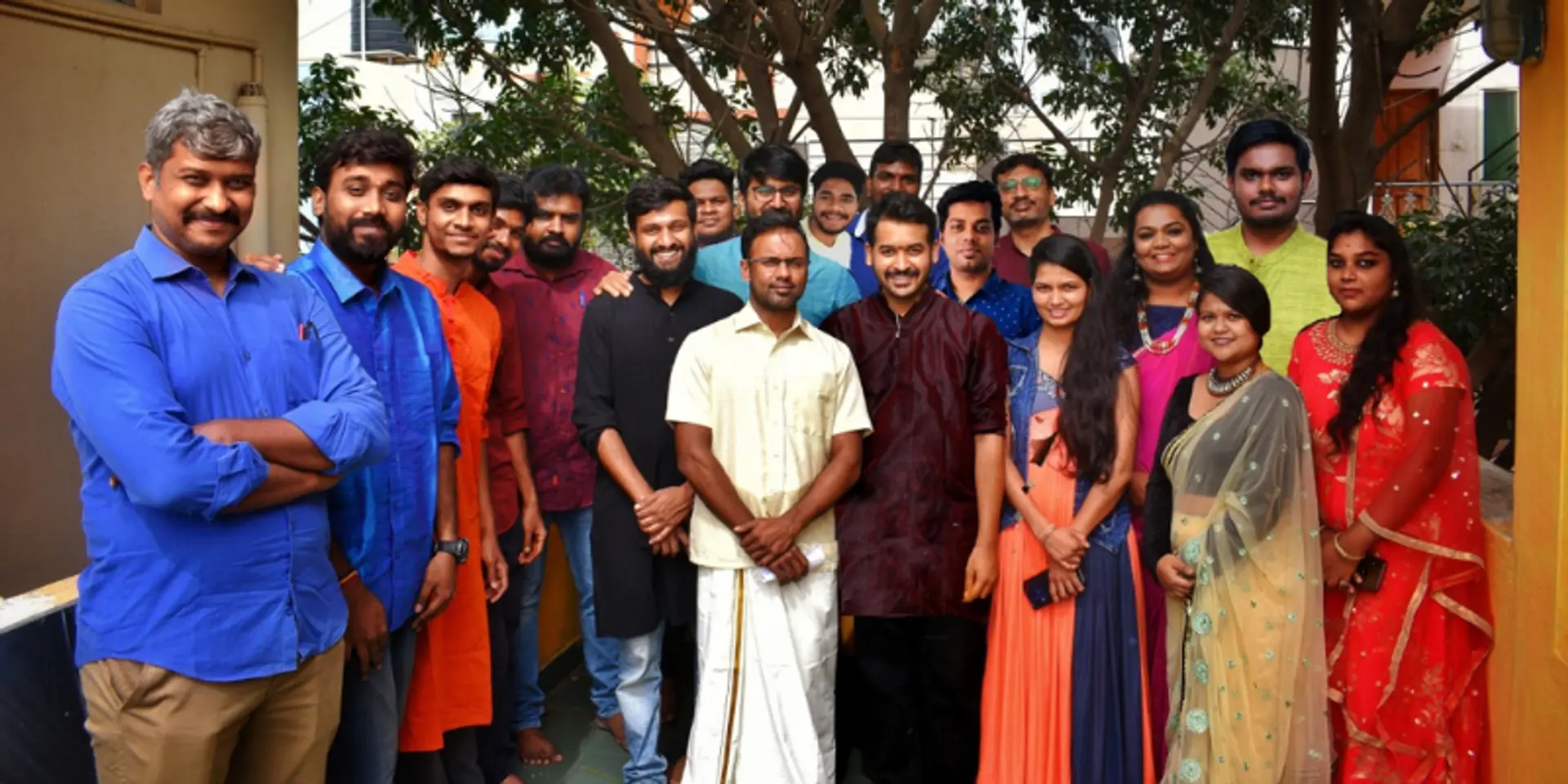Pivot and Persist: How this children apparel startup bounced back from the impact of COVID-19 lockdown to emerge stronger
Children’s apparel startup Schoolay, which mainly provides unisex sports uniforms to schools, undertook a rapid change in its product strategy to beat COVID-19 lockdown blues.
Kiran Hiriyanna started , a children’s apparel startup, two years ago in Bengaluru. In March this year, he was in Dubai holding talks with a few schools to supply the products. But the COVID-19 lockdown literally bought the startup to ground zero as educational institutions, which were its main client, had to be shut down.
Schoolay was started by Kiran and his co-founders - Rajakumaran and Hariharan in early 2018 with an aim to provide unisex activewear school uniforms, which had a sporty appeal. The products were sold primarily through an online channel.
However, the COVID-19 pandemic literally turned the business upside down as schools were shut. However, the founding team was undeterred and pivoted to the new normal with a new product range and claims that it is now close to being EBITDA positive.

The team of Schoolay
“We had a complete domain diversion moving from a B2B2C platform to a direct to consumer (D2C) brand,” says Kiran, CEO & Co-founder, Schoolay.
Since 2018, Schoolay promoted the concept of active school wear uniforms and reached out directly to educational institutions in order to meet the end customers i.e., the parents. It had built a sizeable traction among the schools in India and had also made its mark in the Middle East market.
The pivot
Once the shock of lockdown wore off, Schoolay got onto brass tacks in order to meet the new challenge as it meant the survival of the startup.
“We were cornered,” Kiran very candidly admits, but also saw this as an interesting phase where they directly attacked on the idea of how to generate fresh revenue.
With the experience of building an online apparel brand, the founders realised that they had to come out with new products that will appeal to the COVID-19 environment.
But before that, Schoolay believed it would be better getting the quality certification for the new products they would be launching. In April, the startup started working on these certification processes as Kiran was firm that it would not get into any kind of trading activity.
It took about 90 days for Schoolay to come up with 23 products, and by the end of September, it had launched around 46 products.
Today, Schoolay has around 100 products for children in the age group of 2-18. Some of its products include spectacles to protect against the harmful rays from computers, cap shields, face mask attached T-shirts, reusable protection kits, etc.
“We have bought out functional, essential, and smart clothing where safety is the core focus,” says Kiran.
Back to business
Now, Schoolay does about 500 orders a day and reaches out to 80,000-90,000 customers. The children apparel market is estimated to be around $5 billion in size and there is no single leading brand in this segment making it a very fragmented space.
Kiran says their hard work over the last three years with partners, schools, and investors provided them with the foundation to transition to a D2C brand. Today, Schoolay products are available in some of the leading online channels like Myntra and Amazon Launchpad.
Schoolay also expanded its team size from 11 to 23 during the lockdown period as the production activity is done by its partners. Kiran says their long-term relationship with their production partners also helped in their journey as they have been extremely flexible in coming out with these products.
What also helped the team to tide over the crisis was raising seed funding which it had closed before the lockdown started. Schoolay till now has raised a total funding of Rs 4.5 crore.
“In today’s market, negative cash flow game is no longer attractive,” Kiran remarks.
Newer customers
Schoolay had established its brand presence due to its partnership with around 50 schools, but for its COVID-19 related products, it has generated a new set of customers through online channels.
Today, majority of its customers are from top 12 metros of the country and the startup has a reach across 8,000 pin codes. Schoolay is now recording a month-on-month growth of 20 percent.
Kiran is very optimistic about the future. “Our retention rate with schools is over 80 percent and we are going to be stronger than ever before once these are opened up,” he says.
The startup aims to generate a revenue of $1 million per month by the end of December 2021, which Kiran feels is very achievable.
Kiran believes that schools were the core channel for Schoolay but this has only served as a foundation to expand its brand and reach.
Despite the hyper competitiveness of the children apparel market, Kiran is of the firm belief that Schoolay can make its own lasting impression.
“The size of the market is really large and there are no single Indian kids brand. We believe that there is a strong chance that we can be number one,” says Kiran.
YourStory’s Pivot and Persist series spotlights Indian startups that are pivoting to seize new business opportunities, transforming their business models, and offerings to navigate the current COVID-19 crisis.
Edited by Megha Reddy




